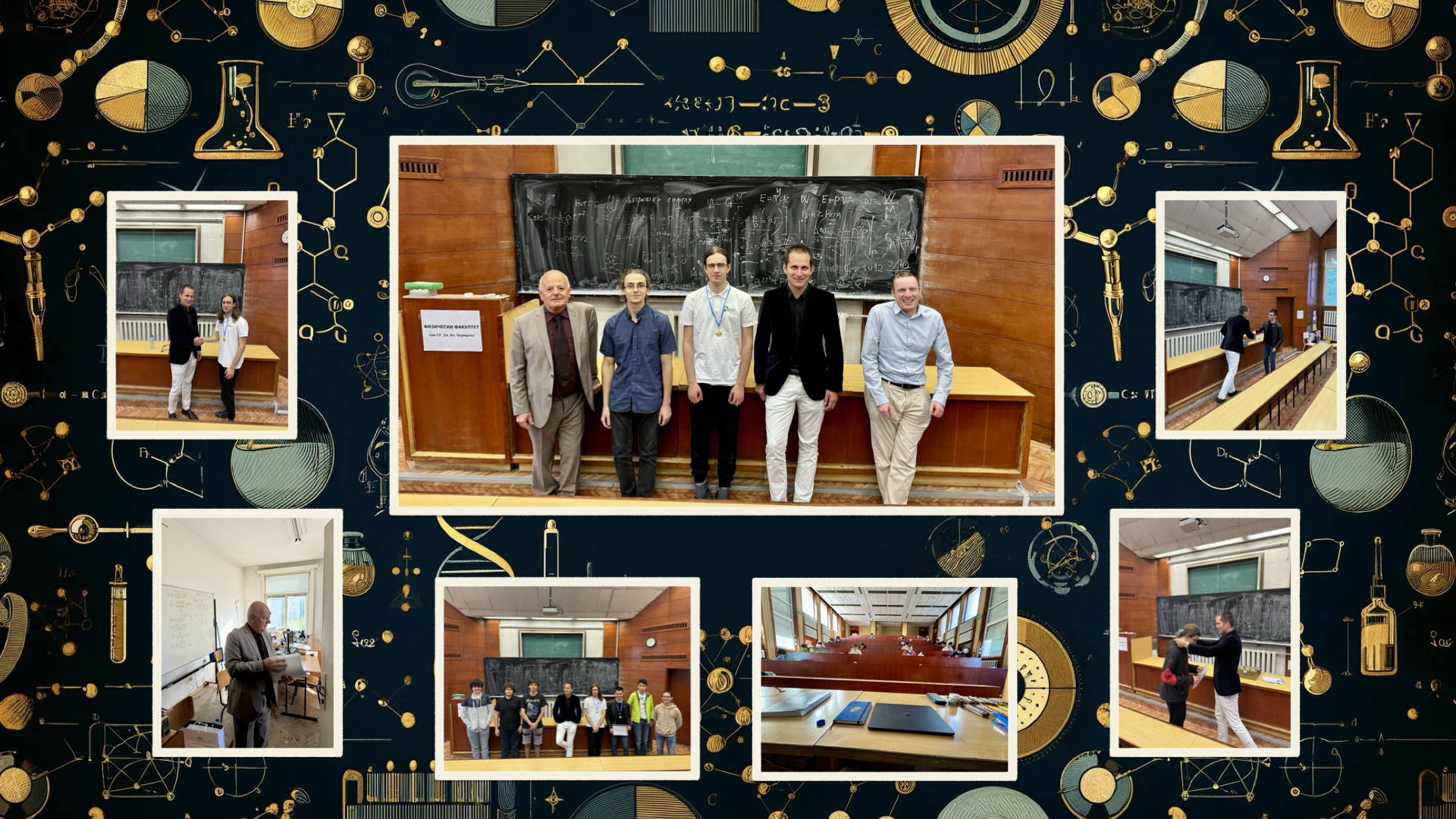
The Carl Gauss Competition in Physics is designed for high-school students aiming to participate in the International Physics Olympiads (IPhO). It focuses entirely on past theoretical problems already given at the IPhO. Our goal is to track the performance of our laureates in future editions of the IPhO and show measurable improvements in their rankings compared to historical results.
The inaugural 2023 edition of the competition was held at the Physics Faculty of Sofia University on April 30, 2023 (which would have been Carl Gauss’s 246-th birthday). In total, 51 participants from two countries registered for the competition and received the book containing all past IPhO problems. According to our survey on the day of the competition, that led to a 2.6x increase in the number of past problems the average contestant had solved. That meant our mission to motivate students to prepare was successful. An additional validation of our thesis came from the fact that we had three students correctly solve one particular physics problem, which had remained unsolved by any of the participants who took part of the 1989 IPhO in Poland when it was originally given. This is greatly encouraging for the impact of the future editions of the Carl Gauss Competition in Physics.
For the second edition in 2024, the average contestant had solved 33% more problems than the year before. The most experienced participant had solved 100 problems vs 75 for the 2023 edition.
Next Edition of the Carl Gauss Competition
The Third Edition of the Carl Gauss Competition will be held at the Physics Faculty of Sofia University in Spring 2025.
Young Carl Gauss
Why did we name our competition after Carl Gauss? He is, of course, a great scientist. But one particular anecdote from his childhood stands out as a particularly good example of what we are trying to achieve with this initiative. We are trying to motivate students to be independent and to help them find a hidden shortcut to furthering their academic career. This was beautifully demonstrated by young Carl Gauss when he was only around 10 years old.
One day Gauss’s teacher wanted to relax a bit so he asked his class to add together all the numbers from 1 to 100, assuming that this task would occupy them for quite a while. To his surprise, young Carl Gauss wrote down the answer 5050 after just a few brief moments of reflection. The teacher couldn’t understand how his pupil had calculated the sum so quickly in his head, but the student pointed out that the problem was actually quite simple. He had added the numbers in pairs - the first and the last, the second and the second to last and so on, observing that 1+100=101, 2+99=101, 3+98=101, and so on. The total would therefore be 50 lots of 101, which is 5050.
It is remarkable that a child still in elementary school had discovered this method for summing sequences of numbers, but of course Gauss was a remarkable child. Fortunately his talents were discovered, and he was given the chance to study at university. By his early twenties, Gauss had made discoveries that would shape the future of mathematics and we hope this simple anecdote and his story will serve as motivation to you.
Prizes
- First prize: You tell us which your dream university is, and the AM Foundation will fly you there for a week and try to introduce you to as many relevant professors and students as possible. This should be the perfect tour to get to know the institution and confirm your determination to study there.
- Second prize: Macbook Air
- Third prize: iPad
- A special prize may be awarded for an original solution to one of the problems.
Rules
The rules of the competition are as simple as they get. We are focused solely on filling the gaps in the preparation of the students competing at the IPhO. For that purpose, the Carl Gauss Competition in Physics will consist entirely of past IPhO problems. Therefore the more of them you solve in preparation, the bigger your chances of winning will become.
You will have five hours to solve three problems. You may bring drawing instruments and approved calculators. No other aids may be brought. The competition will be held in English and in-person at the Physics Faculty of Sofia University. All participants must register on this website before attending. The members of the jury are independent academics who do not have an affiliation with any high-school and do not mentor any of the participating students.
What's our motivation and why the International Physics Olympiad?
The AM Foundation wants to give students the opportunity to increase their chances of studying at top universities and further their academic careers. We decided to focus not on providing advice and mentorship, but rather on allowing students to take matters into their own hands. To study and excel. And currently, the IPhO seems like the best venue for a high-school Physics student to excel. Getting a gold medal at the IPhO will not only be a boost to one's motivation, but also a great way to get noticed by the top academic institutions. A great shortcut, if you will, to furthering one's academic career.
And since things are often not as clear-cut as just electing to go to the number one ranked university, we want to encourage choice and informed decision-making. That is why winning the Carl Gauss Competition in Physics will give you the unique opportunity to explore the university of your dreams for a week.